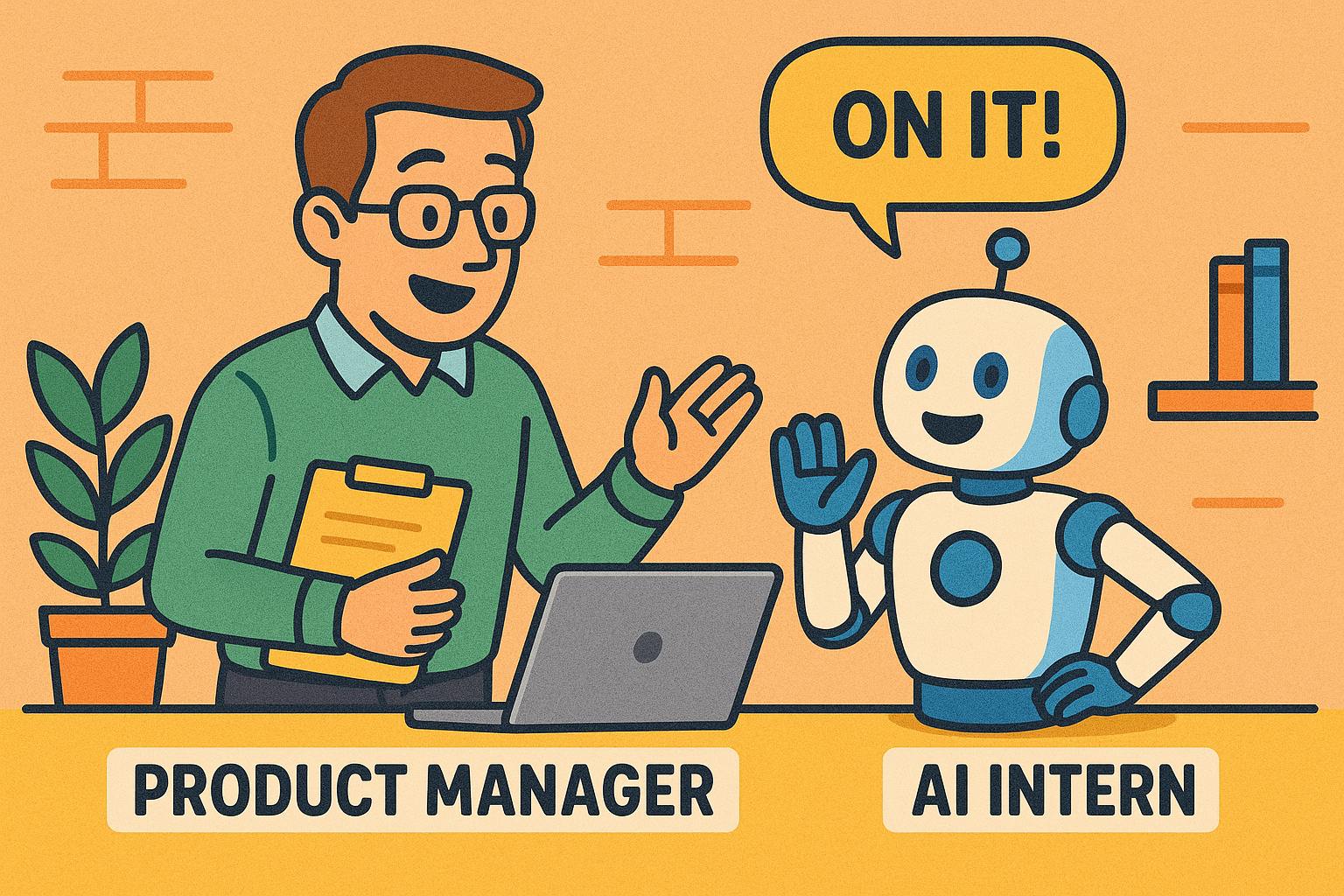Last week, an AI tool helped me prioritize my backlog, reword a product requirement document, and even suggested a snappy title for our next feature launch. I was impressed. I was productive. I felt…slightly unemployed.
As product managers, we call ourselves generalists where we are part strategist, part communicator, part therapist. But with AI tools getting better at everything from market research to wireframing to designing, it’s hard not to wonder: Is AI coming for our jobs, or just helping us do them better?
The Role of a Product Manager
We all know that most people think a PM’s job is just “writing tickets” and “talking to people all day.” It might be partly true, but the real work goes deeper. I would consider a PM as a synthesizer. We translate messy user pain into roadmap-ready problems. We manage stakeholders with competing priorities where everything is critical. PMs balance speed with quality, and business needs with long-term vision. And more importantly, we do all this while building alignment, not just building features.
Yes, there are docs and decks involved, but the real value lies in decision-making under ambiguity, listening when customers don’t know what they want and identifying something tangible from there, and pushing for value-add instead of just output.
What AI Agents Can Already Do
Here’s where things get scary and exciting at the same time. The new wave of AI agents is more than just your autocomplete robots. These tools are now capable of performing real tasks:
- Prioritizing bug reports based on frequency or sentiment.
- Summarizing user feedback across hundreds of support tickets.
- Drafting PRDs from simple prompts.
- Creating mockups from text descriptions
Tools like ChatGPT, Claude, Notion AI, and even vertical-specific agents like Jira Assist can do in seconds what used to take hours. For example, my colleagues used to spend hours manually going through all the user feedback. With AI, that job now takes less than 10 minutes, and comes with a sentiment breakdown and actionable suggestions.
These intelligent systems aren’t just copilots anymore. They’re more like interns who don’t sleep and don’t complain when you ask for revisions.
Where AI Falls Short
Here’s the twist: while AI can mimic tasks, it tends to struggle with judgment.
AI seems to have a tough time understanding why a feature was delayed last quarter, or how a certain stakeholder’s pushback could derail the roadmap. It can’t intuitively understand that a small feature might unlock a major upsell opportunity. It cannot understand nuance, politics, optics, or gut feeling.
When it comes to stakeholder management, AI can’t read the room, navigate egos, or align cross-functional teams on a half-baked roadmap built on changing priorities.
AI can extrapolate from trends, but it doesn’t have actual product intuition or the ability to identify market momentum, hence, it is missing Vision. Similarly, when it comes to empathy, while AI can simulate empathy in language, it doesn’t feel the user’s pain or care about the mission. That’s still human territory.
Predictions for the Future: Collaboration or Competition?
So, what does the future look like? PMs who acknowledge the competition and embrace AI won’t be replaced, they’ll be amplified.
AI agents can automate the grunt work, the mundane jobs, they can act as real-time idea validators, and even help with stakeholder communication, which means we PMs can spend more time on strategy and vision, focus on storytelling and influence, as well as be better and quicker at decision making.
The PM of tomorrow is part strategist, part curator, and part AI mentor. The role doesn’t vanish, it evolves, and of course, some PMs might be replaced, but it will be by other PMs who know how to use AI effectively. The idea is for product managers to provide domain knowledge to these intelligent systems, train and re-train AI agents, provide feedback, and ensure it is able to do your grunt work so effectively that you can trust it completely to focus on more important things.
Conclusion
So… will AI kill product management? Unlikely.
But it will definitely challenge those who see PM work as just “moving tickets around”. The real PMs, the ones who listen deeply, think clearly, and lead with proper alignment to the vision, should be irreplaceable. AI can write a spec, but it can’t tell you whether you should even build the feature. It can generate solutions, but it can’t define the correct problem. I feel less unemployed and less afraid, after reading this, and let’s be real, having a fun intern who never sleeps, never argues, and writes great copy is kinda awesome.


